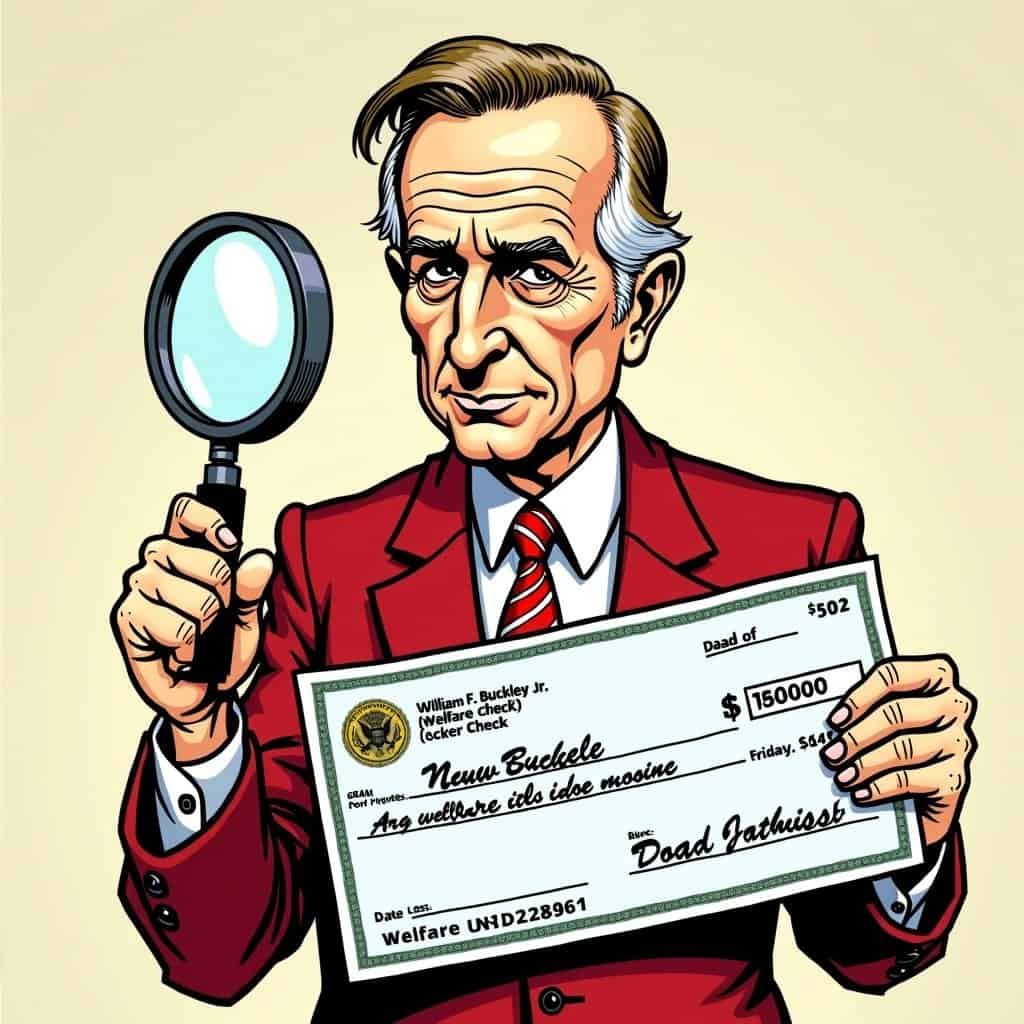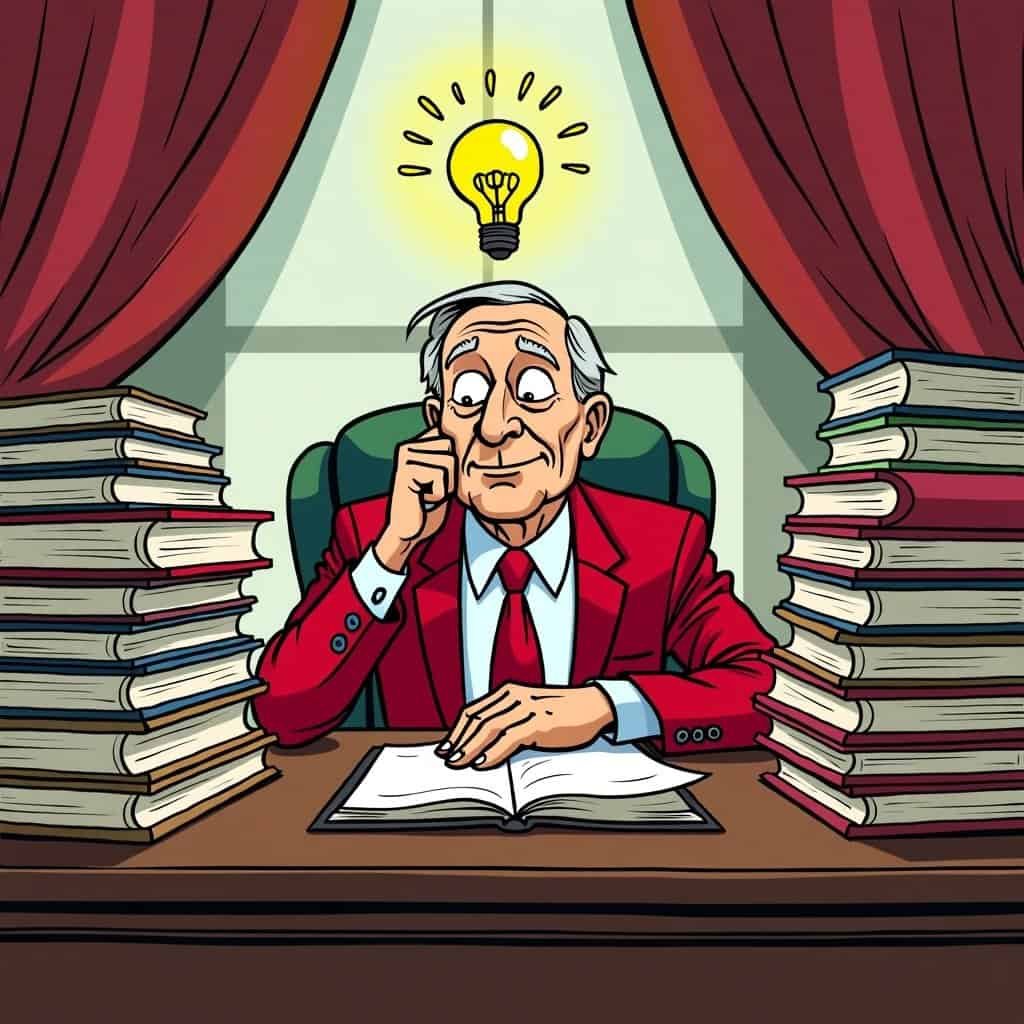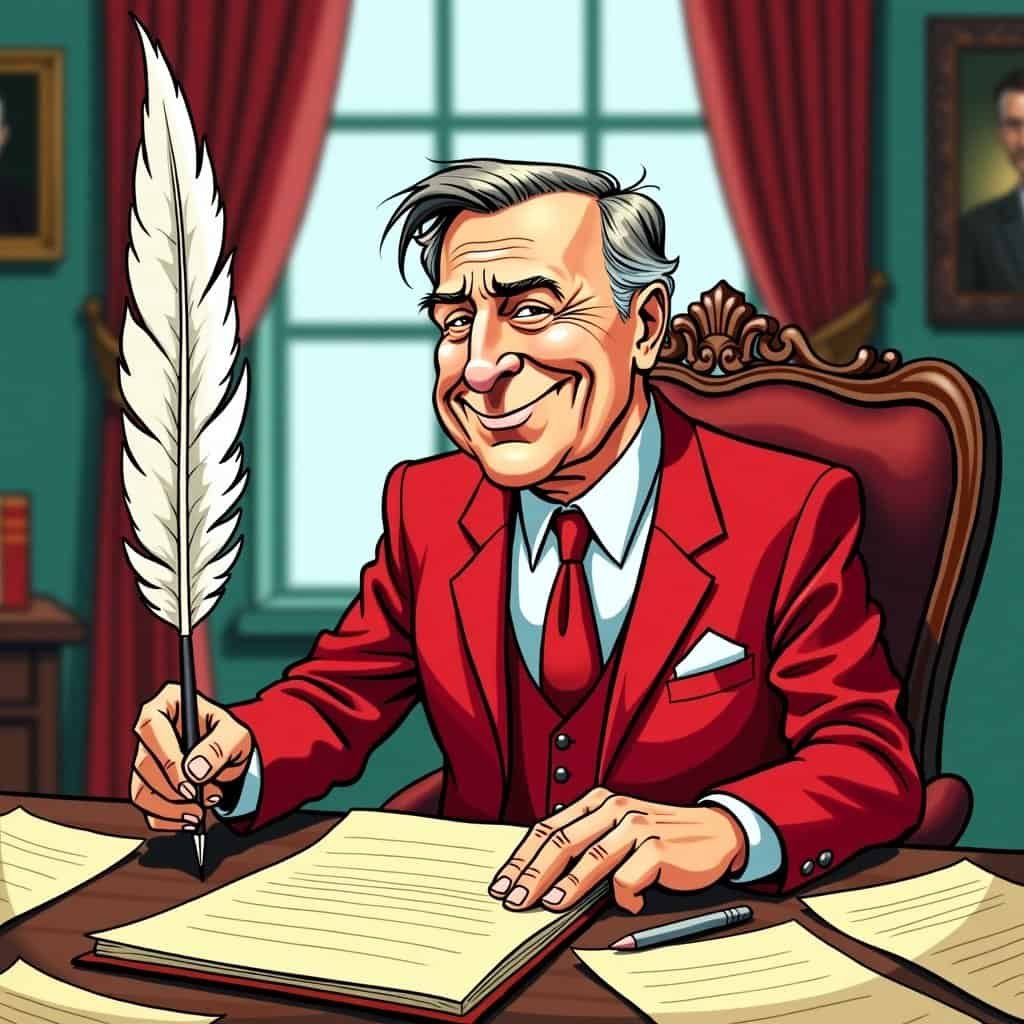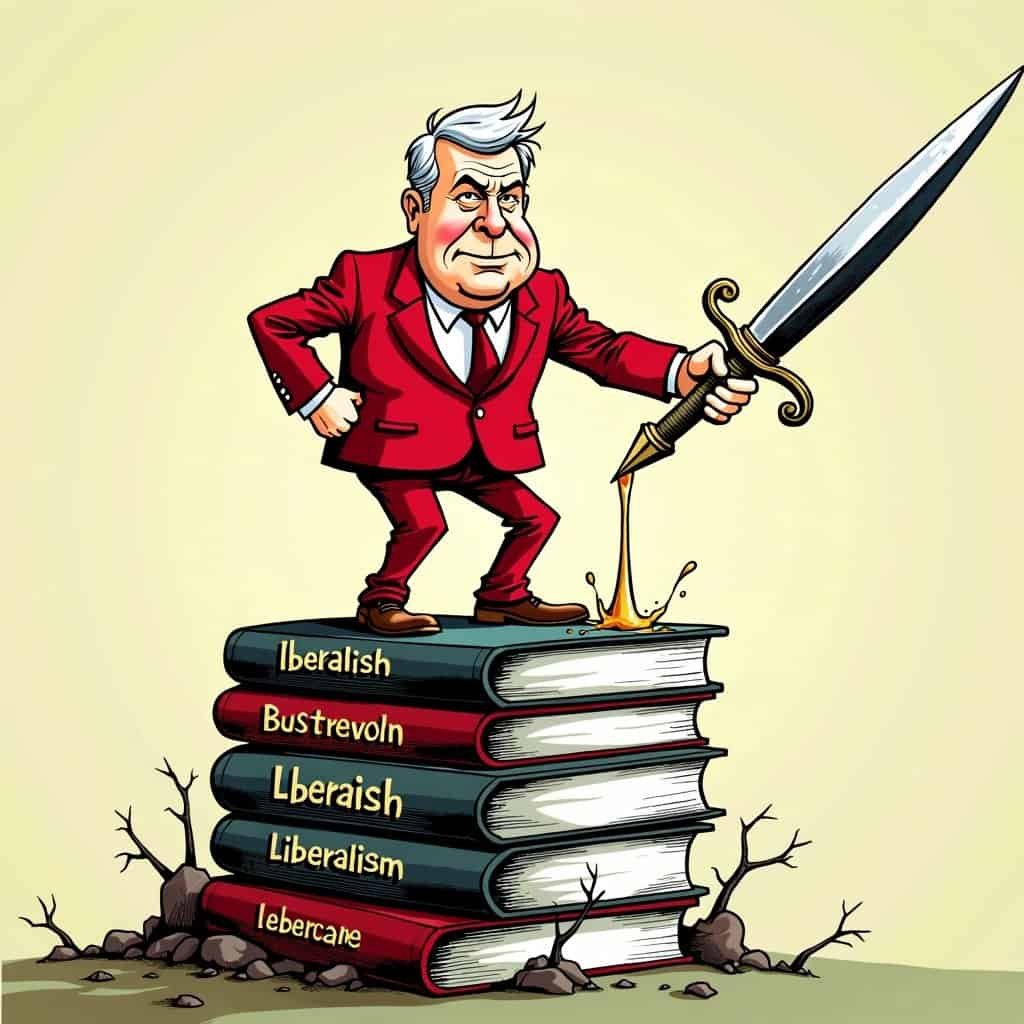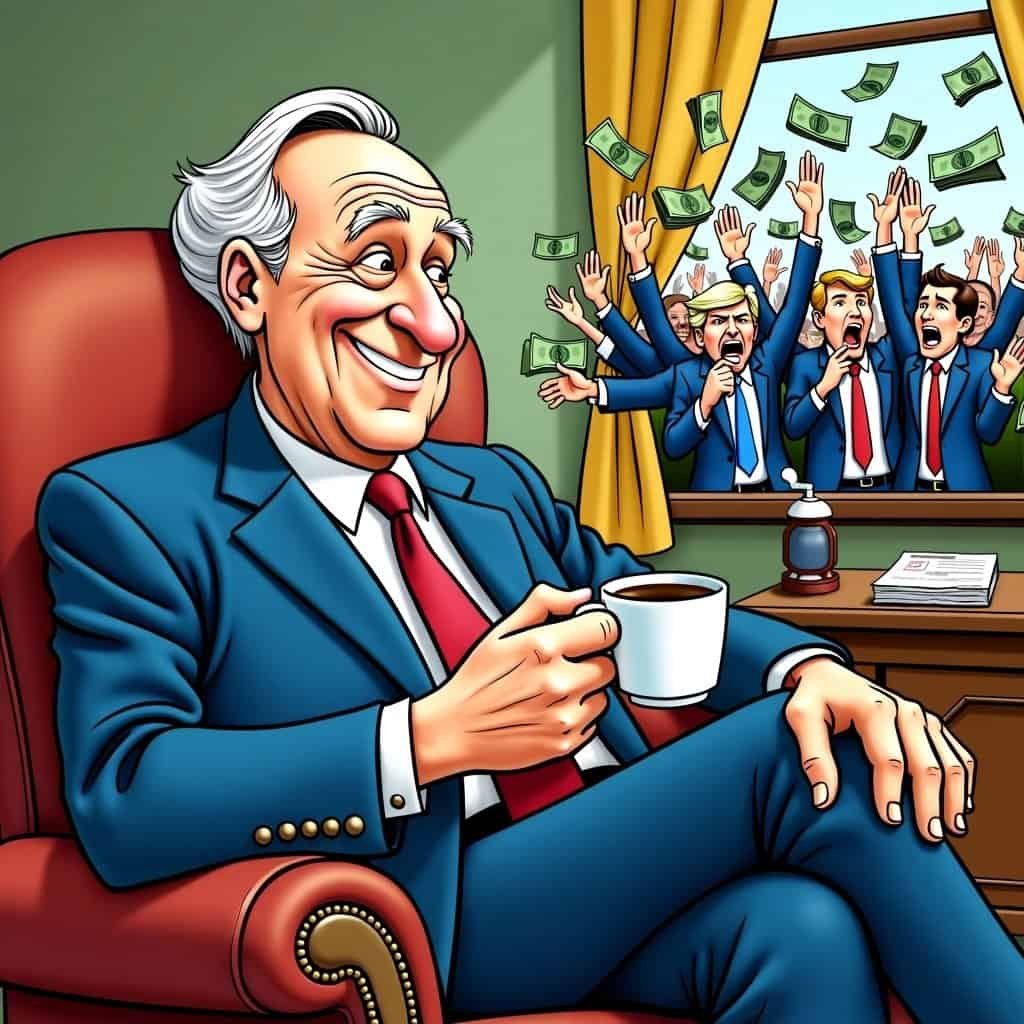Ah, William F. Buckley Jr., the man with a wit so sharp it could split a hair in half and then point out the liberal bias in both ends. Today, we’ll revisit Buckley’s take on the welfare state—a topic so relevant in today’s political circus that it almost feels like the state’s new mascot should be a juggling bureaucrat.
Buckley wasn’t just complaining over his morning coffee. He used his intellectual prowess to cut through the maze of welfare policies with a purpose: to champion freedom, responsibility, and a government that fits the Founding Fathers’ vision, not a bloated bureaucratic fantasy.
Taxes and the Economy: A Conservative Perspective
Let’s talk money—taxpayer money, to be precise. Conservatives believe in letting folks keep more of their hard-earned cash. Buckley was all for this. Lower taxes, he’d say, lead to more investment, more jobs, and a thriving economy. It’s basic economics—something we hope at least a few folks on Capitol Hill paid attention to in school.
The conservative view? Simple: Let businesses and individuals keep more of their money, and watch them reinvest it back into the economy. They create jobs and drive innovation. Picture a prosperity-generating model versus the progressive dream of endless government handouts. Lower taxes expand the tax base, boosting overall revenues—even as tax rates drop. It’s like a conservative magic trick, except it works every time it’s tried. Sound familiar?
Tax Policy Comparison
| Conservative Approach | Progressive Approach |
|---|---|
| Lower tax rates | Higher tax rates |
| Encourages investment | Redistributes wealth |
| Promotes job creation | Funds government programs |
| Expands tax base | Shrinks tax base |
On the flip side, Democrats and their progressive pals seem to think Uncle Sam should swoop down like a caped crusader, playing Robin Hood with your paycheck. Tax the rich, tax businesses, they say! What could go wrong? Well, Buckley pointed out plenty. High taxes suppress investment and discourage business expansion. Companies, burdened by heavy taxes, end up cutting jobs or moving overseas. So much for helping the little guy.
The Economic Snowball Effect
Economically, it’s a snowball rolling downhill. Smaller investments mean fewer jobs. Fewer jobs mean less consumer spending. Less spending means a slowing economy. And before you know it, that welfare state is gobbling up more and more tax dollars to support a misguided system that’s spinning out of control. It’s like trying to fill a bathtub with a hole in it – all while liberals stand around wondering what went wrong.
The Moral Quagmire of the Welfare State
But it doesn’t stop there, folks. The welfare state Buckley disliked isn’t just an economic black hole—it’s a moral swamp. Buckley argued that welfare dependency weakens the human spirit. It replaces ambition with apathy, responsibility with reliance. How can anyone chase the American Dream when the government convinces you to sleep through it?
Think about conservative values, individual responsibility—the stuff that built this country. Buckley knew these values didn’t just boost economic growth; they shaped moral character. He worried that the welfare state, with its siren song of government dependency, undermined the very principles that made America exceptional.
Buckley’s View on Welfare’s Impact
- ✘ Reduces personal responsibility
- ✘ Discourages self-reliance
- ✘ Undermines work ethic
- ✘ Fosters government dependency
- ✘ Weakens community bonds
He supported a merit-based approach where handouts were the last resort, not the first. A helping hand, sure, but not a permanent one. He’d argue – probably with a clever quip and perhaps a quote from Aristotle – that the dignity of work and self-reliance should always trump becoming dependent on the state. He sure knew how to take wisdom from history and make it relevant today.
Buckley’s Critique in Today’s Context
Buckley would’ve had a field day with today’s batch of progressives, wouldn’t he? From Green New Deals to universal basic incomes, it’s a welfare paradise they’re after—an unrealistic fantasy Buckley tore apart with facts and determination. To our liberal friends, Buckley might’ve said, “A perfect welfare state that funds itself? Pull the other leg—it plays Jingle Bells!” (And, knowing him, he might have said it in Latin for extra flair.)
In summing up Buckley’s lasting critique, we remind ourselves of the principles we hold dear today: lower taxes, personal responsibility, and an economy driven by individuals, not bureaucrats. The welfare state tries to make us dependent on the government, but Buckley’s wisdom urges us to resist, to realize the grand potential of freedom.
So as we consider Buckley’s sharp critique, we remember that self-reliant individuals have always been the true source of America’s greatness. Let’s keep the spirit of liberty alive by supporting policies that empower people—not chains of dependency. After all, the future belongs to the free, not the subsidized.
Table of Contents
- Taxes and the Economy: A Conservative Perspective
- The Economic Snowball Effect
- The Moral Quagmire of the Welfare State
- Buckley’s Critique in Today’s Context
